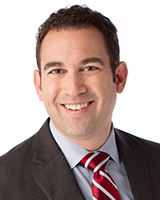Google Glass finds its audience in medical community


SAN FRANCISCO (KGO) -- Google Glass was never popular among consumers, but it's becoming a hit in the medical community.
CrowdOptic, a Bay Area company, has teamed up with the doctors at UCSF to use Glass to help save lives.
At the Society of NeuroInterventional Surgery's annual meeting, doctors demonstrated how to use Google Glass in a medical setting.
"Medicine is a profession of sharing views. I'm a physician and learned how to become a physician when someone said, hey, come take a look at this," said Jim Kovach, senior vice-president of CrowdOptic.
Jim Kovach's company put Glass on the Indiana Pacers. The company makes video streaming software.
"There are some natural implementations in sports where people want to get different perspectives of the game. We saw in medicine, where say physicians would want to share views over an operating theater," Kovach said.
Nowhere is that a hotter topic than in treating a stroke.
"We lose about two million neurons per minute if you stop the blood flow to the brain, and nobody wants that, so time is so critical," said Don Frei of the Society of NeuroInterventional Surgery.
Putting Glass in the ambulance, or the emergency room, can give neurologists a head start.
"By us seeing the patient remotely, we can prepare in the hospital to treat them more aggressively and fast," said Wade Smith UCSF neurovascular service director.
It turns out the very thing that gave Glass a reputation problem with consumers is what doctors like most about it, the ability to capture images unobtrusively.
"You can put it on your head, you can free your hands to do things that we need you to do," Smith added.
It can be used in training with the tiny, specialized devices used for stroke treatment. In some cases, using Glass can be better than having the expert in the room.
"Most of the time they're having to look over their shoulder, they're having to look through other people," said Keri Hawkins, Medical Device training director. "This gives the unique vantage point of being in the operator's eyes."
Minutes can make all the difference in a medical emergency.
"Between life and death or between someone who's severely disabled or those who can walk," said Shazam Hussain, Cleveland Stroke Clinic program director.




